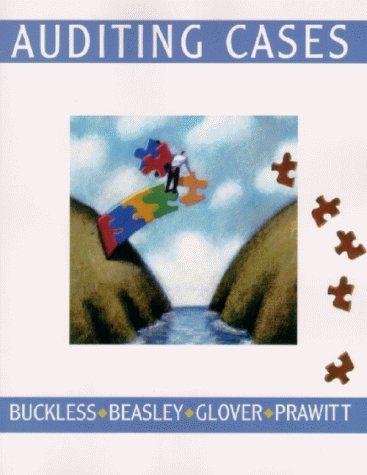Nathan recently interviewed with one of the accounting firms in the city where he wants to live.
Question:
Nathan recently interviewed with one of the accounting firms in the city where he wants to live. The firm agreed to cover the expense of a rental car that he used to travel from his university to the firm’s office. The rental car agency required that Nathan pay for the car with his credit card and have the firm reimburse Nathan for the expense rather than have the firm pay the expense directly. At the end of his trip Nathan was supposed to pay the bill and then send the receipt to the firm for reimbursement.
As Nathan prepares to send in the receipt, he notices that the car rental agency has overbilled him by \($40.\) Nathan calls the accounting firm to explain that his reimbursement request will be delayed because he has been overbilled. During his phone conversation with the human resources (HR) manager, Nathan says he will call the rental agency to have his bill corrected and will send the firm a copy for reimbursement when the revised bill arrives. The HR manager tells Nathan not to bother correcting the overbilling;
she requests that he simply send in the current receipt and the firm will reimburse him for the entire amount. The HR manager is not concerned about paying the tA “s higher bill—apparently it does not meet the firm’s “materiality threshold.” Before deciding whether to send in the incorrect bill, Nathan calls the rental car agency to see why he was overbilled. The agent is quite rude, essentially telling Nathan to “get lost.” Now Nathan is determined to get the money back, and after several longdistance phone calls and considerable hassle, the rental car company agrees to credit his card to correct the \($40\) overbilling. The credit will show up on Nathan’s next credit card statement.
The recruiter, however, has already told Nathan that the accounting firm will pay the higher amount and has requested that he forget about the error and send the bill in for reimbursement. Being a bright, aspiring business professional, Nathan immediately realizes he could have the rental agency credit his card for the \($40,\) but send the current receipt to the accounting firm to get reimbursed for the amount he originally paid.
Essentially he would walk away from the deal with \($40\) in his pocket, less the cost of his long-distance phone calls to correct the error. Given the hour he spent fighting with the rental company, a little reimbursement for his trouble does not sound too bad to Nathan.
REQUIREMENTS
1. Given that the firm did not have any problem paying the higher bill, would Nathan's planned course of action be ethical? Why or why not?
2. What other courses of action might be available to Nathan? Which do you think would be the best action for him to take?
Step by Step Answer:

Auditing Cases
ISBN: 9780130800015
1st Edition
Authors: Frank A. Buckless, Mark. S. Beasley, Steven M. Glover, Douglas F. Prawitt





